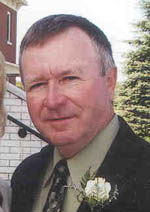 You
Cannot Discover New Land Unless You Have The Courage To Lose
Sight of The Shore You
Cannot Discover New Land Unless You Have The Courage To Lose
Sight of The Shore
Editorial
by Robert Kirwan
One of my favourite authors is Tom Peters. He wrote the
following observation, “I’ve spent a good part of my life
studying economic successes and failures…above all, I’ve
learned that everything takes a back seat to innovation.”
Unfortunately,
most of our busy lives are so focused on solving day-to-day
problems that we seldom have any time to even consider
opportunities which may lay right on our doorstep. Sadly, many
of the people currently occupying leadership roles in business
and government spend so much of their time trying to maintain
control that they actually discourage employees and colleagues
from “thinking outside the box”. It doesn’t take long
for young, ambitious persons starting out in a new career to
learn that if they want to keep their job, they better do what
they are told and put a lid on things such as innovation,
risk-taking and creativity.
I came
across a great story recently called, Paper Airplane. It was
written by a man named Michael McMillan. The story is about a
Grade six teacher who spent an entire week teaching her class
about aerodynamics. To finish off the unit she organized a
paper airplane contest. Each student was given a sheet of
construction paper and 15 minutes to build the “winning”
plane that would fly the furthest and win a prize.
The
students went to work immediately, carefully folding their
paper, hoping to create the perfect plane that would travel
farther than all of the others. Before long, everyone was
ready to go outside to start the contest. Everyone that is,
except for Jeff. He was a unique child and was known for
traveling to a “different drummer” if you know what I
mean. He usually had his own view of life that was not always
the same as the others in the class. Jeff hadn’t made even
one fold in his paper. He just sat there staring out the
window – thinking.
To give him
more time, the teacher told Jeff he could go last. As the
contest went on there were some very interesting results. Some
of the planes barely flew two meters while others did
surprisingly well. As the students in the class each stepped
forward to test their creations, Jeff stood there at the back
of the line, still holding on to that piece of construction
paper.
Before
long, Jeff was the only remaining contestant. With great
anticipation, the class watched as Jeff approached with his
“craft” well hidden behind his back. Then he stepped to
the line and exposed his masterpiece…a flat sheet of paper.
But just as the class began to snicker, Jeff confidently
wadded up the piece of paper into a tight ball, and then drew
his hand back and threw it higher and farther than the leading
plane had landed.
The rest of
the class stood there in amazement. The silence was broken
when the teacher began to clap her hands and stepped forward
to present Jeff with the first-place prize. The rest of the
students then joined in applause and cheered the champion.
Jeff
demonstrated a new way of interpreting a problem. More
importantly, he had the courage to act on his vision.
I’ve met
a lot of people in my life like Jeff. Most of them, however,
have grown tired of trying to “fight the system” and
eventually settled down into a relatively secure life of
compliance and conformity. They learned early that “rocking
the boat” and “making waves” makes most other people
uncomfortable. Your life is a lot less stressful if you just
“go with the flow” and do what you are told.
Others have
gone on to “think outside the box” and have become very
successful through innovations that other people soon came to
like once they got over their initial “fears”.
T.S. Elliot
once said, “Only those who are willing to go too far can
possibly find out how far they can go.”
The next
time you come up with an idea that seems “outside the box”,
have the courage to act on your vision. If you fail, you fail.
At least then you will know how far you can go or at the very
least, what you must do to go further the next time. T.S.
Elliot’s message is true. If you never fail, you never
really know just how far or how successful you could become.
You have to fail in order to know when you’ve gone too far.
Remember,
in order for Christopher Columbus to discover
America
, he had to have the
courage to lose sight of the shore.
Have a good
week!
|